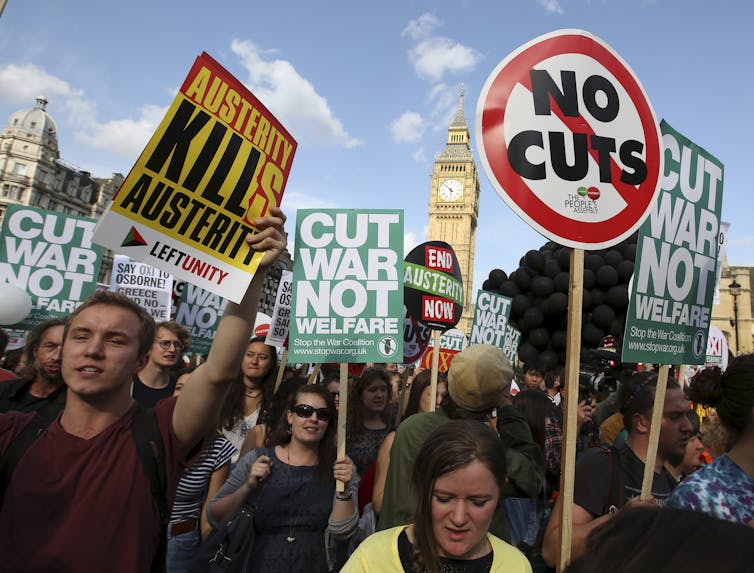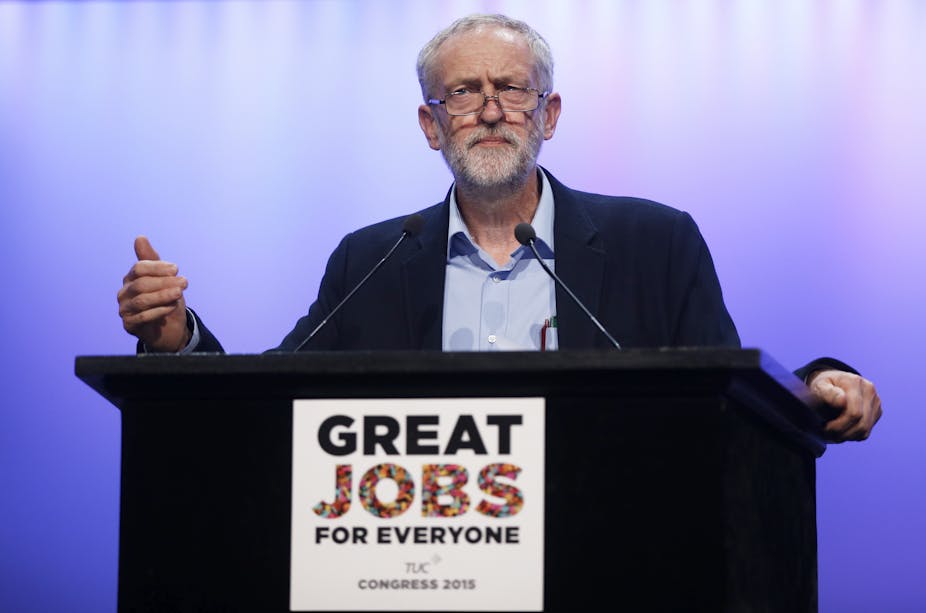There’s no doubt that Jeremy Corbyn’s election as the leader of the Labour Party has changed the direction of political debate in the UK. Previously, cuts to workers’ wages and reductions in public expenditure were on the menu of all the major political parties. No longer are these the key planks of Labour policy and there is now a clear dividing line between that party and the ruling Conservative Party.
A major responsibility for constructing and promoting these alternative policies falls on John McDonnell, a long-time ally of Corbyn, who has been appointed shadow chancellor. The Labour Party still seeks to reduce the UK’s financial deficit. But it plans to do so through economic growth and investment, particularly in manufacturing, which will increase tax revenues, employment, reduce poverty and demands on welfare.
Among the policies advocated by Corbyn and McDonnell are investment in infrastructure, the creation of a national investment bank, renationalising the UK’s railways and energy companies, clamping down on tax avoidance, raising taxes on wealthy individuals and large corporations, increasing the effectiveness of business regulation, and giving more help to society’s vulnerable citizens.
Pursuing these kinds of Keynesian policies in the era of neoliberal economics may not be popular with some – though renationalising the railways and energy companies would attract considerable public support. Corbyn’s platform has been branded “anti enterprise” by representatives of big business.
But in many ways, Corbyn’s platform is highly pro-business. After all, investment in transport, education, housing, healthcare and digital economy helps business. Higher wages and a general redistribution of wealth would increase the purchasing power of ordinary people and stimulate demand for products and services.
Renationalising the railways and energy companies would offer relief to consumers who have faced above-inflation price increases. Plus, a clampdown on tax avoidance and corporate abuses would remind business that they have a social responsibility and that their long-term survival depends on public confidence.
Helping smaller businesses
Small businesses employ more than 15m people in the UK but are often unable to compete with larger businesses on level playing fields. A good example is taxation where multinational corporations have been able to avoid corporate taxes by devising complex structures and shifting profits to tax havens.
Smaller enterprises cannot do this and their effective tax rates have accelerated. So a clampdown on tax avoidance would be to the benefit of small and medium enterprises. Additional measures include a small-business rate freeze, rent controls to stop local shops being priced out, an increase in spending on workforce training, and resources for digital infrastructure.

Bucking the trend
Politicians have a choice. They can use their position to cement the status-quo, thereby enabling those privileged by history to remain in the ascendancy. Or they can entertain new ideas and side with more marginalised sections of society.
The prevailing orthodoxy is one of austerity: cuts in public spending, widening income inequality and little being done to check corporate abuses. Support for this status quo has become so deeply ingrained that its advocates rarely offer adequate evidence to support their claims. It is therefore easy for politicians to go along with this prevailing way of thinking – as the other three Labour leadership candidates did.
Meanwhile, reactions to Corbyn’s election and his appointment of John McDonnell as his shadow chancellor shows how difficult it is to speak out against the prevailing orthodoxy. They have drawn hostile reactions from those who have embraced what they claim to be an idealised model of politics and economics.
Rather than undertaking a critical examination of its own ideological leanings, much of the media have demonised Corbyn and equated calls for public ownership and social investment to a loss of balance and reasonableness.
This is not perhaps surprising. Those who are comfortable with the status quo are suspicious of those who do not worship at the same political and economic altar. Too many politicians take shelter in the status-quo because they don’t want to appear to be difficult or controversial, or need approval from captains of industry. They seek comfort in some idealised notion of being balanced, objective, moderate and mainstream. But the price of this acquiescence has been a lack of choice for the electorate, degradation of democracy and a UK economy that does not appear to be going anywhere fast.
The Corbyn-McDonnell agenda has broadened the space for political debate. This newly created space will empower others to speak about hitherto marginalised ideas and encourage debates about the kind of society that we all want to live in.

